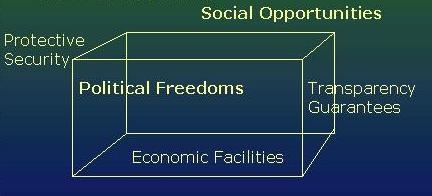One is struck, floating through Amartya Sen’s argument in Development as Freedom, by the sheer complexity that policymakers face when confronting entrenched conditions of poverty, inequality, and coercion. Incentives to increase productivity or efficiency in markets cannot, in themselves, abate these structural problems, because the aspects of development that bolster economic agency must simultaneously address governmental and cultural practices. Sen’s position, then, that freedom is both instrumental to development and constitutive of it, comes as a concrete and coherent rejoinder to those whose assumptions that certain cultures depend on illiberal traditions to function. Continue reading
Tag Archives: individuals
